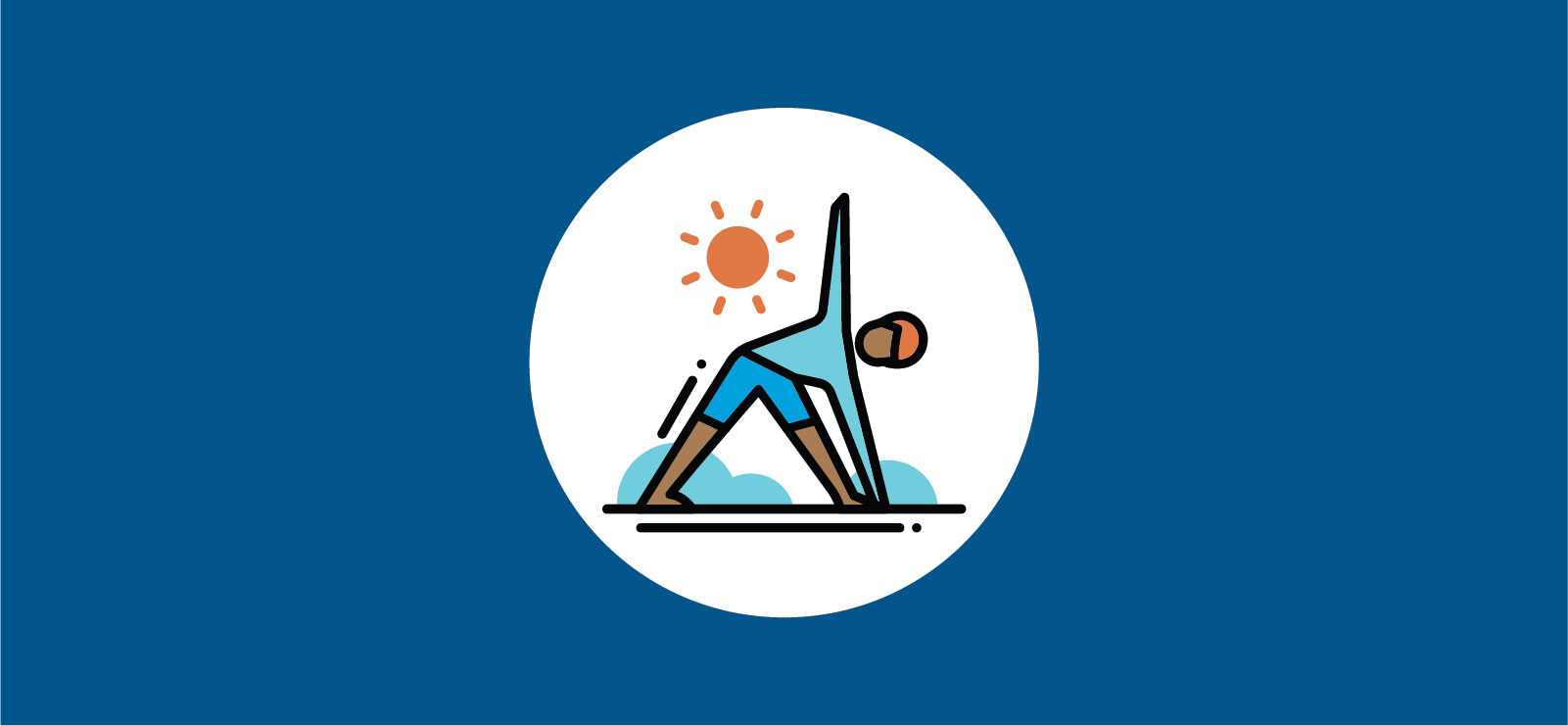Physical wellness refers to finding a beneficial balance in one's nutrition, exercise, and sleep habits to support a longer and healthier life.
Know: What is Physical Wellness?
Physical wellness is striving to make consistent positive and sustainable choices that prioritize proper care and optimal functioning of your body. These choices play an important role in health maintenance by giving your body the energy and focus that it needs for the day. Making healthy choices when it comes to nutrition, exercise, and rest not only prevents illness, but supports longevity. Prioritizing your physical wellness also supports your mental wellness by playing a role in boosting mood, reducing stress, and improving sleep. Support your physical wellness by focusing on the areas below.
Do: The Path to Physical Wellness
Nutrition: Prioritizing excellent nutrition is a great way to take care of your health both now and in the future. Good nutrition is unique because it is personalized to the individual; however, there are general recommendations and guidelines for the average individual to follow in order to meet one’s needs. Consistency in these daily choices, rather than perfection, is most important.
-
Food: The Mediterranean diet is one of the most researched, evidence-based eating patterns shown to promote a longer, healthier life and reduce the risk of disease. It focuses on incorporating lean proteins, whole grains, healthy fats, and copious amounts of fruits and vegetables. The Mediterranean lifestyle also encourages sharing meals with loved ones and slowing down to enjoy your meal.
-
Hydration: The recommended daily intake of water for adults is 3.7 liters for men and 2.7 liters for women. Needs may be further personalized based on size, physical activity, and environment. Urine color and frequency are simple ways to determine if you are adequately hydrated. If you are urinating 5-6 times per day with a urine color similar to lemonade or lighter (rather than apple juice or darker), you are well hydrated.
Exercise: The CDC recommends at least 150 minutes of moderate intensity aerobic exercise per week and at least two muscle strengthening activities per week. There are increasingly more health benefits when achieving up to 300 minutes of moderate intensity aerobic exercise per week. If you are participating in vigorous intensity aerobic exercise, you only need 75 to 150 minutes per week. Exercise looks different for every person and there are more activities that count than you may think. Find an activity that you look forward to and can be consistent in adding to your routine. Examples include structured gym workouts, sports, walking the dog, dancing, cleaning, gardening, yoga, biking, skating, hiking, swimming, and more.
Sleep: Sleep hygiene involves sleep consistency, length, and quality of sleep. All of these can be easily disturbed in college by schedule changes, late night studying, and alcohol intake. It is recommended that adults 18 and older get seven to eight hours of sleep per night. Better sleep supports our physical and mental health by directly impacting our focus, mood, memory, immunity, and mental/physical performance. A lack of sleep increases risk for developing disease long-term.
Health Maintenance and Disease Prevention: Health maintenance and preventative health care are important parts of physical wellness. Working with a primary care provider can optimize your personalized physical wellness by emphasizing health promotion and disease prevention. This takes into account family history, social habits, routine screening, and vaccinations. A goal of physical wellness is to help you understand how your body works and why it needs certain things to maintain a healthy lifestyle. In college, the stress put on our bodies can decrease in our abilities to fight infections and illnesses when they arise. Seeking timely medical care for illnesses, injuries, and chronic medical conditions is vital for your overall physical wellness. Working with a medical provider can help you make informed decisions when it comes to your health.
Seek: Resources for Physical Wellness
- Dine on Campus: Provides information and dining resources at Catholic University, including up-to-date menus, ingredient information, meal plan information, and more. Reach out to the Campus Registered Dietitian for assistance navigating food allergies, dietary restrictions, and general healthful eating on campus (Jordan.Sawyer@compass-usa.com or @catholicudietitian on Instagram).
- Fitness and Recreation on Campus: Provides information on the fitness center, club sports, intramural sports, Cardinal Adventures, and fitness and recreational activities.
- Student Health Services: Provides information on Catholic University’s campus clinic. The clinic is available for any healthcare needs, including health maintenance and treatment for illnesses, injuries, or chronic medical conditions.
- Mediterranean diet resources: Provides information and recommendations to help you incorporate choices consistent with the Mediterranean diet.
- MyPlate resources: Provides a nutrition guide published by the USDA to help you create a general healthy eating routine. Find education and recipe/shopping resources here, along with an app to guide you along your health journey.

